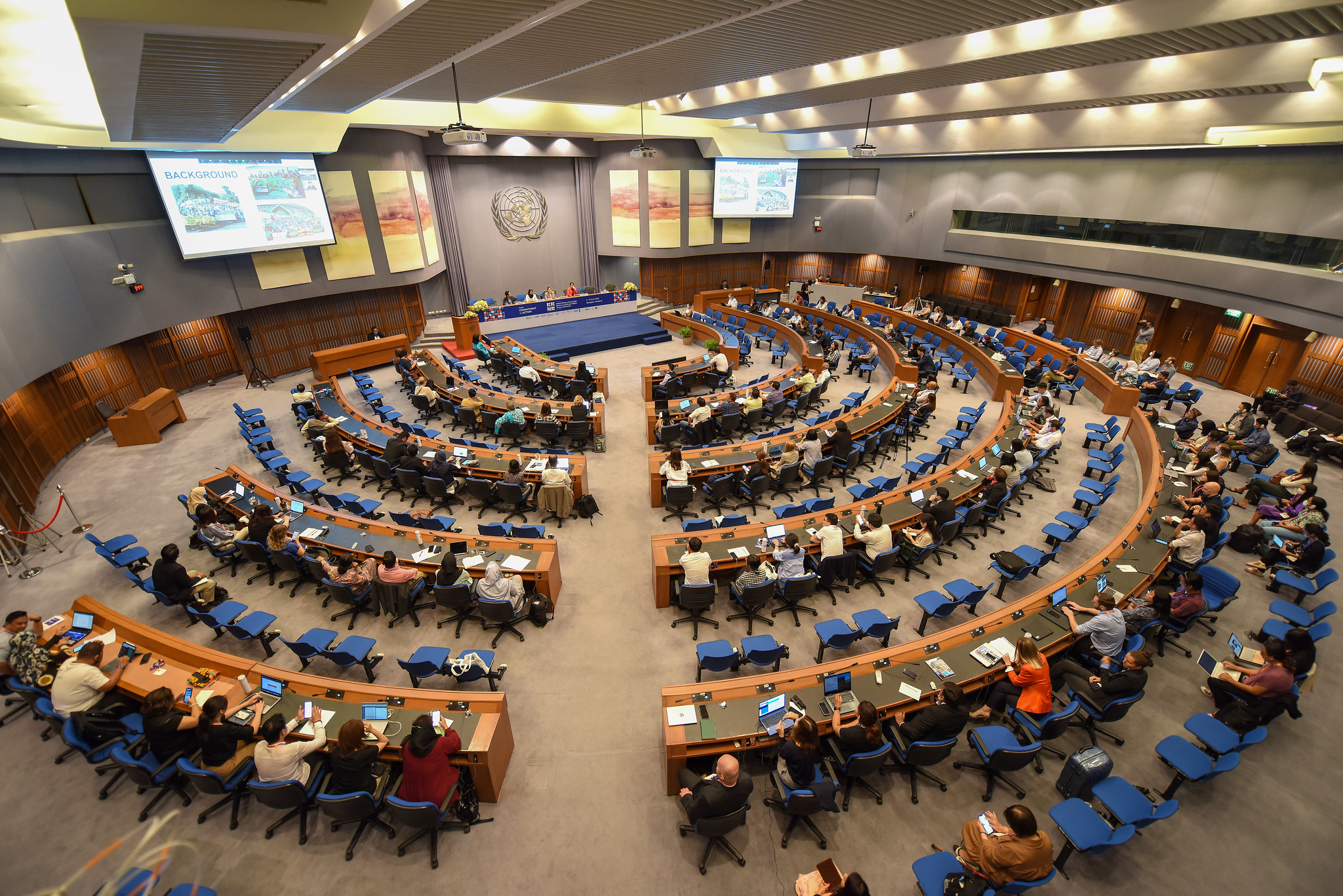“Business enterprises continue to use their clout to nullify the work of human rights and public interest advocates through abusive lawsuits (SLAPPs) and far more needs to be done by governments to protect against this practice,” said the panelists during the forum titled ‘Addressing SLAPPs Against Human Rights Defenders in South-East Asia: Challenges and Lessons Learned’ on 9 June 2023.
The panel was part of the UN Responsible Business and Human Rights Forum, held at the United Nations Conference Centre, Bangkok, Thailand. It was co-hosted by the International Commission of Jurists (ICJ), the Office of the High Commissioner for Human Rights (OHCHR) regional office for South-East Asia, and the UN Working Group on Business and Human Rights.
The purpose of the dialogue was to shed light on key human rights issues related to SLAPPs in South-East Asia and discuss legislative and policy developments, examining the challenges and lessons learned.
“SLAPP” refers to lawsuits undertaken with the principal objective of curtailing or deterring public criticism or opposition to certain activities of the entity of those initiating the legal action, including in the human rights area. SLAPP lawsuits typically have a “chilling effect” on the exercise of freedom of opinion and expression; freedom of peaceful assembly; and the right to take part in the conduct of public affairs.
The panel, moderated by Sanhawan Srisod, ICJ legal adviser, contained a presentation by Katia Chirizzi, Deputy Regional Representative of the OHCHR for South-East Asia, followed by Pochoy Labog, Southeast Asia Researcher and Representative of the Business and Human Rights Resource Centre (BHRRC). He pointed to troubling statistics collected by BHRRC regarding the attacks on human rights defenders advocating for responsible business practices and the pernicious effects of SLAPPs.
Angkhana Neelapaijit, one of Thailand’s most prominent human rights defenders and a former Commissioner of the National Human Rights Commissioner of Thailand (NHRCT), joined the panel. She was recently appointed as a UN Expert and Member of the UN Working Group on Enforced or Involuntary Disappearances (WGEID).
Neelapaijit herself is a victim of a SLAPP, facing a criminal defamation lawsuit filed against her by a poultry farm company in Thailand. The lawsuit was initiated after she tweeted in support of former employees who spoke out about alleged labor abuses perpetrated by the owner of the farm. She shared her firsthand experience with SLAPPs targeting human rights defenders in Thailand and the physical, emotional, mental, and financial damages suffered by victims. She also noted that the efforts taken by Thailand to combat abusive SLAPPs through the adoption of anti-SLAPP provisions were insufficient and had not been effectively implemented by justice sector actors as they failed to dismiss SLAPP suits.
Celine Lim, the Managing Director of SAVE Rivers and an indigenous woman from Baram, Sarawak, Malaysia, also shared her organization’s experience as a victim of a SLAPP. Her organization faced a defamation lawsuit filed by a Malaysian conglomerate whose logging activities were the subject of the communities’ complaints, which were published by SAVE Rivers.
Lim also emphasized the alarming proliferation of SLAPPs in Malaysia, the importance of legal aid and support for SLAPP victims, the need to define what constitutes “public information” to ensure protection, and the issue in Malaysia where SLAPPs are often categorized as regular defamation lawsuits.
The final panelist, Pichamon Yeophantong, Chairperson of the UN Working Group on Business and Human Rights, discussed the potential consequences of SLAPP cases on individuals, communities, and society as a whole. She called for increasing public awareness about the dangers of SLAPPs.
Background
Freedom of opinion and expression, freedom of peaceful assembly, freedom of association and the right to take part in the conduct of public affairs are guaranteed under the International Covenant on Civil and Political Rights (ICCPR), to which many Southeast Asian countries are party. These rights constitute norms of customary international law, and the duty to respect and ensure them are binding on all States.
The UN Declaration on the Right and Responsibility of Individuals, Groups and Organs of Society to Promote and Protect Universally Recognized Human Rights and Fundamental Freedoms (The Declaration on Human Rights Defenders), adopted in 1999, affirms the right to engage in human rights education and advocacy and the corollary State duties to ensure the protection of human rights defenders.
It was adopted by consensus of the General Assembly and thus represents a unanimous commitment by all UN member States to its implementation.
Watch recordings of the event here.
Contact
Sanhawan Srisod, ICJ Associate International Legal Adviser, e: sanhawan.srisod@icj.org
Further reading




